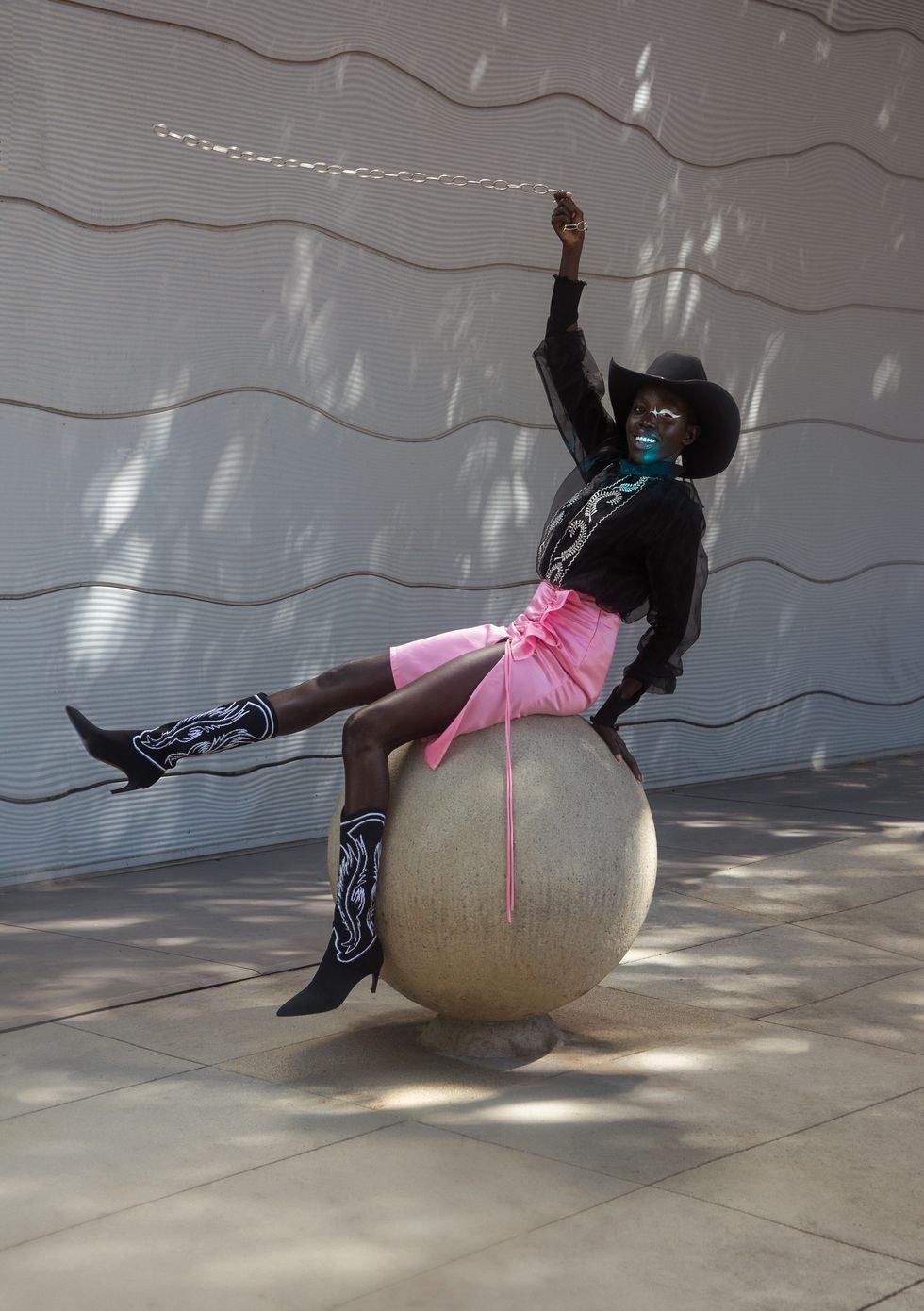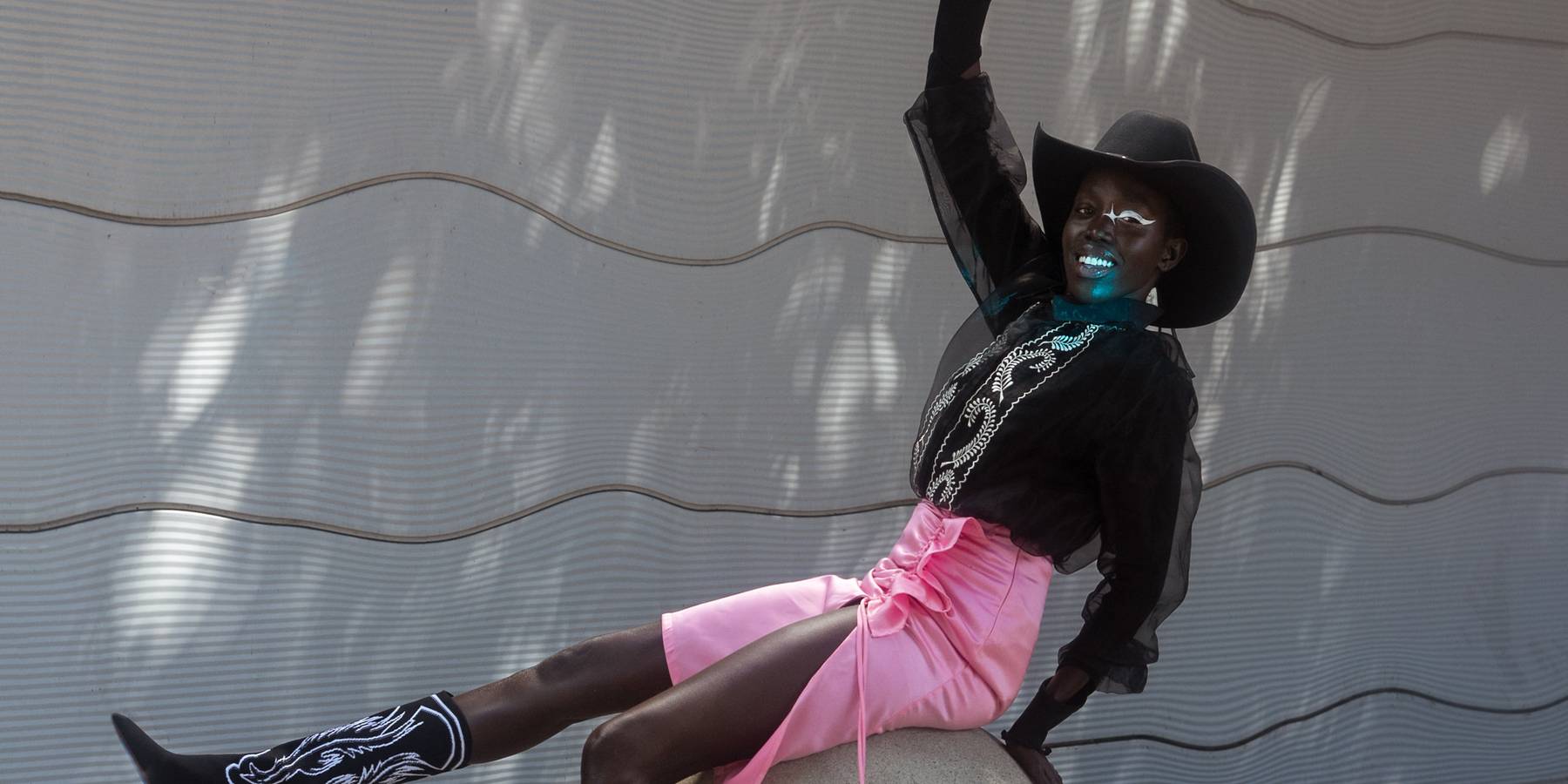
Today, on U.S. Independence Day, Kuoth Wiel is an accomplished model and actress living in L.A. But 20 years ago, she was fleeing Ethiopia, where a border dispute with neighboring Eritria had incited violent conflict. Her family had already fled Sudan amid a civil war that started in 1983.
Back then, the U.S. allowed almost 100,000 refugees to enter the country annually. That's twice as many as the drastically reduced 2018 maximum of 45,000, making it the lowest cap since 1980. The vetting protocol for hopeful refugees, already very strict (even under Obama), has become strategically more rigid under Trump's promise of "extreme vetting" and the banning of refugees from multiple predominantly Muslim countries.
By April of this year, only 5,225 refugees had been accepted — a 65.8 percent reduction from the same period two years prior. If this rate of acceptance continues, the U.S. won't even reach the halfway mark of the newly lowered 45,000 max by the end of the year.
The Sudanese civil war that displaced Wiel's family didn't end until 2005. Peace didn't last long, unfortunately. Conflict continued until South Sudan achieved independence in 2011, but a new civil war erupted in 2013. At least 50,000 people have been killed, close to five million have faced food shortages, and about four million people have been displaced in the last five years alone. Meanwhile, U.S. resettlement of refugees from Sudan has dropped by 83.6 percent.
That Wiel and her family were able to escape shows quite explicitly how the resettlement opportunities for refugees are at the mercy of government, in particular the U.S. President, who has the final say in determining the acceptance cap. Though the U.S. has historically accepted more refugees than any other, it hasn't kept up with the growth in the global refugee crisis. With Trump at the helm, that doesn't look likely to change.
PAPER spoke with Wiel to learn more about her story, and to find out what being American means to her now, 20 years after resettling. Read on to learn more about her experience, and why community support was crucial throughout — and why you should find ways to help, too.
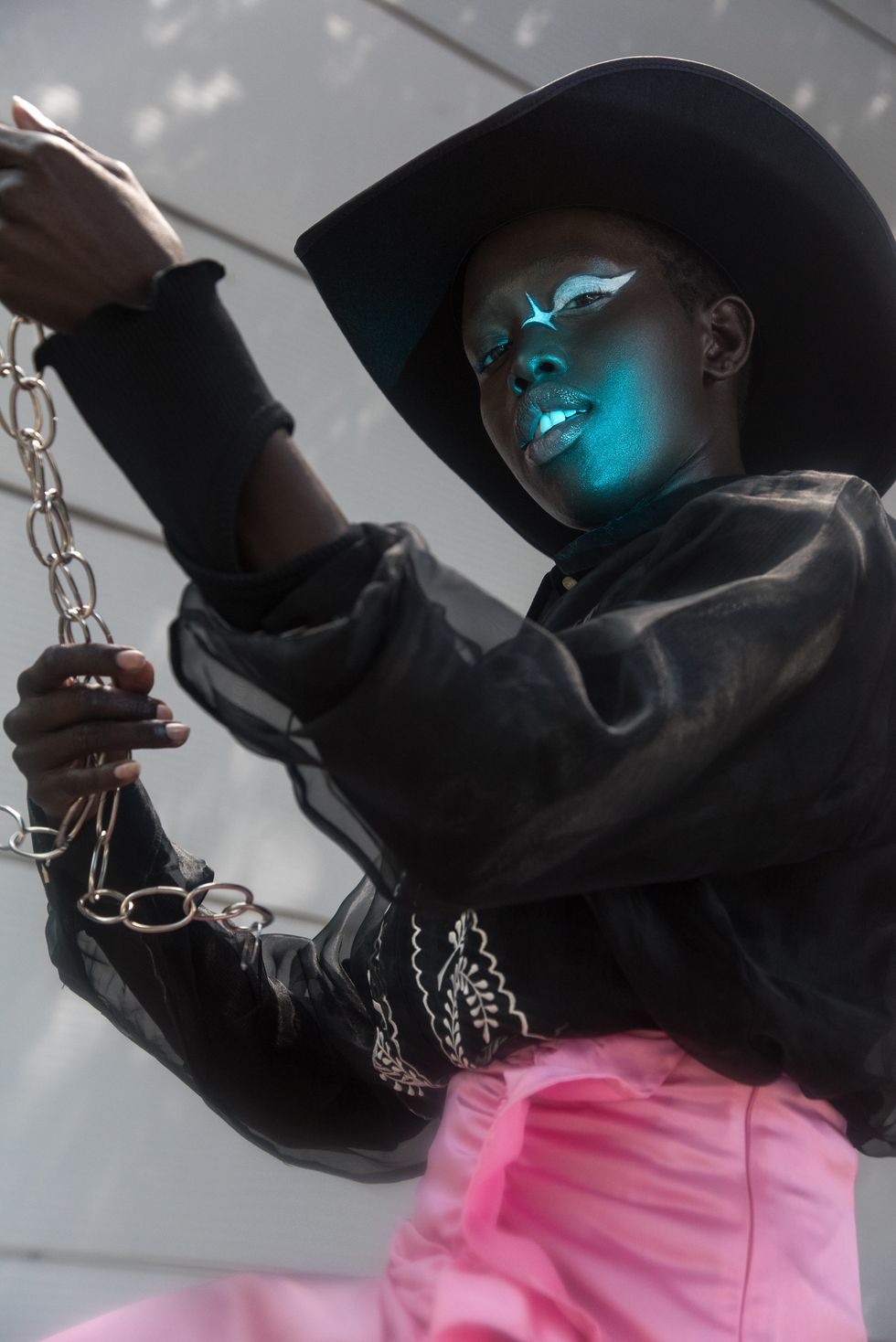
You came to the U.S. as a refugee when you were very young. Can you tell us more about the environment you left, and what your life was like afterward?
I came to the U.S. when I was eight years old in 1998 with my mother. My father had passed away because of war two years prior. My father worked as a doctor in the small town that we lived in, it was called Nasir. And throughout the time we moved back and forth between Nasir [in South Sudan] and Gambela [in Ethiopia]. It was so close, so back and forth we would go, and when I was there, we were there at least twice — that second time that we were in Sudan, we then got into another conflict where we just had to leave, and my father was killed in the way of us coming back to Ethiopia.
And I came with an older brother and a younger sibling as well. So we landed in Minnesota — that was our first introduction to the United States, to the culture. Minnesota became our home, though we moved around maybe a few times, just to see where we wanted to fit in and things like that. We ended up in a small town where we had a community there that was very helpful to us, and the church community, they did everything to help us.
Readjusting to the new culture, to learn the new things — because we had to start from scratch, coming into a new culture. We had to learn how to navigate everything about the system; learn the rules, which we then learned as we went, like step by step. When I graduated high school I went to Augsburg College [in Minneapolis]. That's where I graduated with a degree in psychology. Then, during my time in college, that's when I landed the role in The Good Lie, [the 2014 film about children of Sudanese war featuring Reese Witherspoon]. Then I moved to L.A. and worked in modeling and acting.
"I want to focus on empowering women, because I feel that women and girls are the most disenfranchised out of the my own community, and Africa in general."
Have you gone back to South Sudan or Ethiopia since leaving? What is the situation like there now?
I have not been back recently because of what was happening; [the civil war in South Sudan] started in 2013. And so I didn't even have time to consider going before that, because I was transitioning out of my life. I should have taken the time to go back, but we were just dealing with the conflict that was happening, and it would have just displaced us all over again. I think for a lot of people in the community, they were rebuilding from the trauma that they had escaped just a few years prior to that.
We did have a comprehensive peace agreement in 2005, then in 2011 were able to basically split our country, but the issue was obviously that the people who were in power were not siding with the people themselves, and because of that there was a power struggle. So that's where we are now — trying to figure out really how to move on without reliving the trauma all over again. For us people who are in America, who are in the West, for us, it's something you can't touch, that you can't see immediately. I haven't been back since I was a child, so my memory of it is so different from what it is now. The reality of what's happening now, I would say, is worse than what we went through at the time we were there.
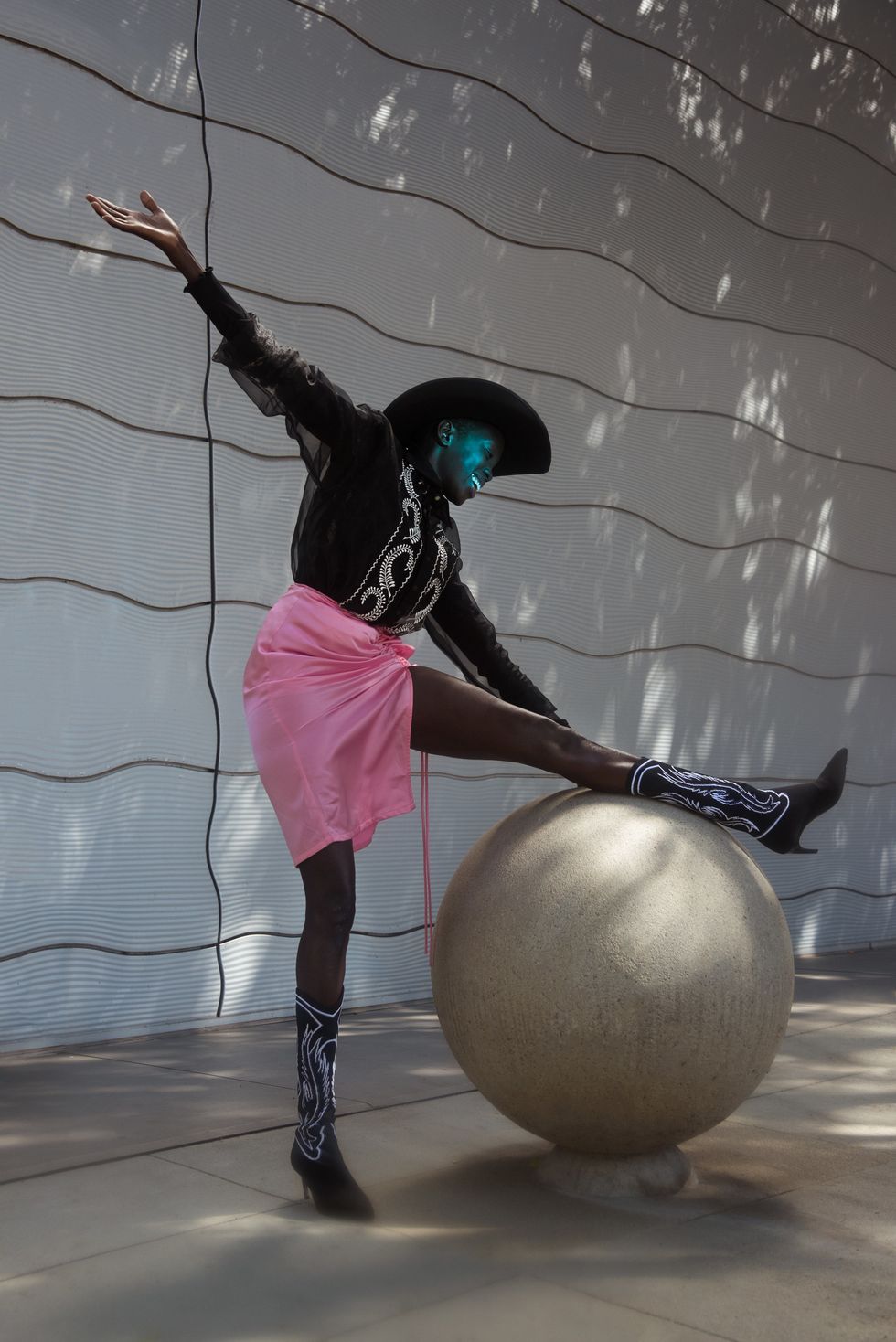
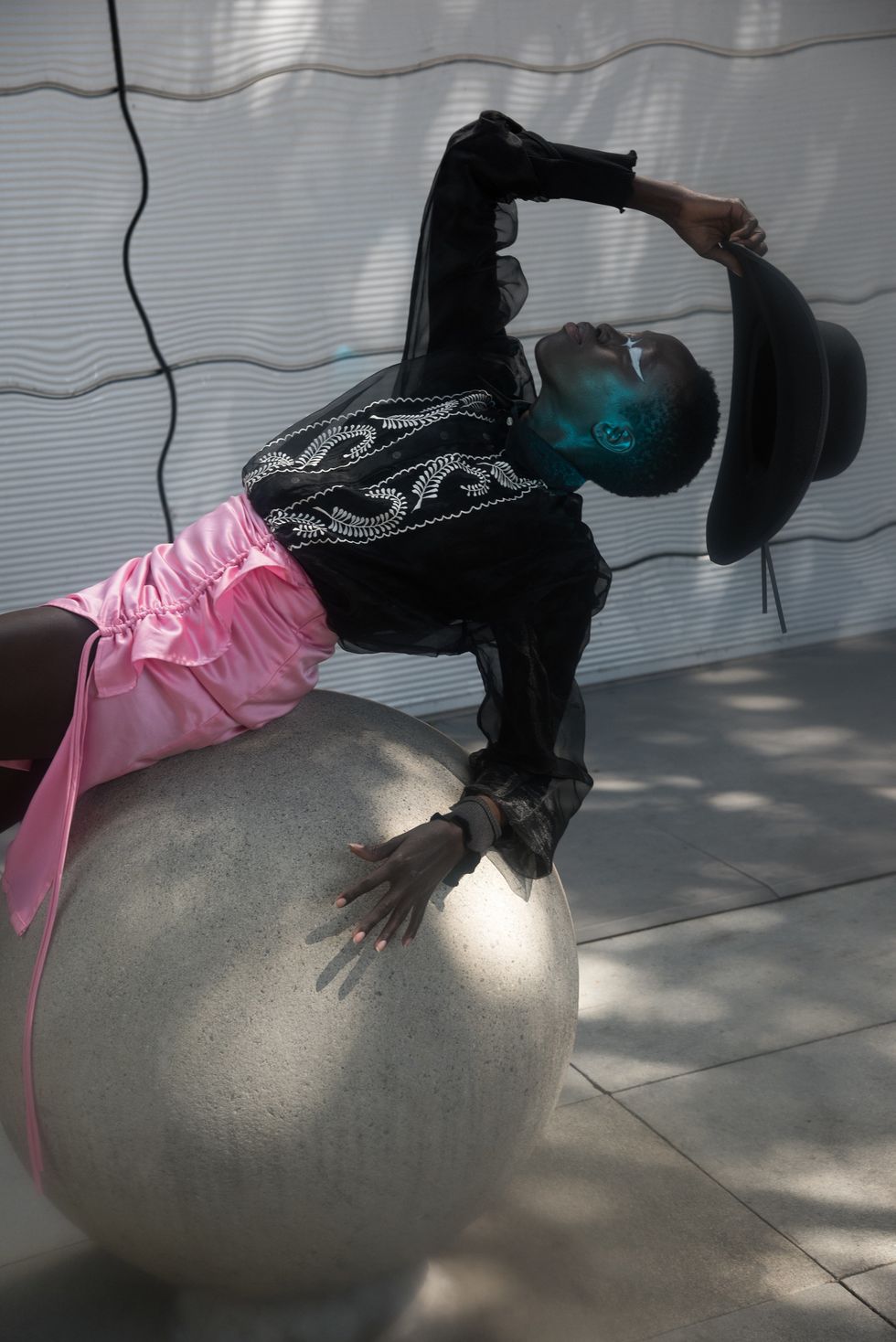
I know you started a foundation, NyaEden, to provide survival necessities to disadvantaged women and children throughout Africa. Can you tell us more about that work?
I want to focus on empowering women, because I feel that women and girls are the most disenfranchised out of the my own community, and Africa in general. Being a young South Sudanese woman, but also living here in a place with certain privileges that other girls don't have, especially with education — so right now we're working on getting scholarships to young girls in Ethiopia. South Sudan right now is such a dysfunctional place that we've decided to focus on the refugees that are coming from South Sudan and Ethiopia. I thought that it was needed, and while it's not a huge organization, I wanted to do something that I felt like I was giving back to the people. We do have huge organizations in the country, like the UN and things like that. I just wanted to do something small that I can do within my part.
"We forget that there's refugees from all over."
Does that involve outreach to South Sudanese refugees coming into the U.S. now?
Yes. A lot of the South Sudanese kids here really don't have role models in our community, so most of the work that I do here is mentoring. I have a group of girls [in San Diego and surrounding areas] that I reach out to and see how they're doing, so that they can have a good plan for life. Their parents are also dealing with a lot, and because of that, it's usually transferred onto the children. So me, knowing how life was as a child, and having to deal with my parents who were obviously suffering from what they had gone through, and navigating that, basically what we do here in the U.S. is to give that kind of mentorship.
I think people often forget that the refugee crisis is global. The news isn't heavily covering what's happening in South Sudan these days.
I see that. The media [decides], in terms of what they want to put out there. Especially in these crises — crises are exploited in that sense, where people tend to focus on something. For me, it's Sudan, but we forget that there's refugees from all over. Especially in Syria, because the crisis in Syria was happening and no one knew about it until certain media started to report on it. Even with South Sudan, there was a little momentum at first, then after that it just became quiet. I think it was up to the South Sudanese people to go out and advocate for these things. We're in a place [in South Sudan] where we can actually protest without being punished for saying something. There was a group of people who went to the capital [of Juda, where the U.S. Embassy is located]. But I think it has to take all of us to say this is not okay.
[Note: The February 2018 demonstration was organized in response to a new ban on the supply of arms to South Sudan. A petition delivered to the Embassy accused the U.S. of supporting the rebels.]
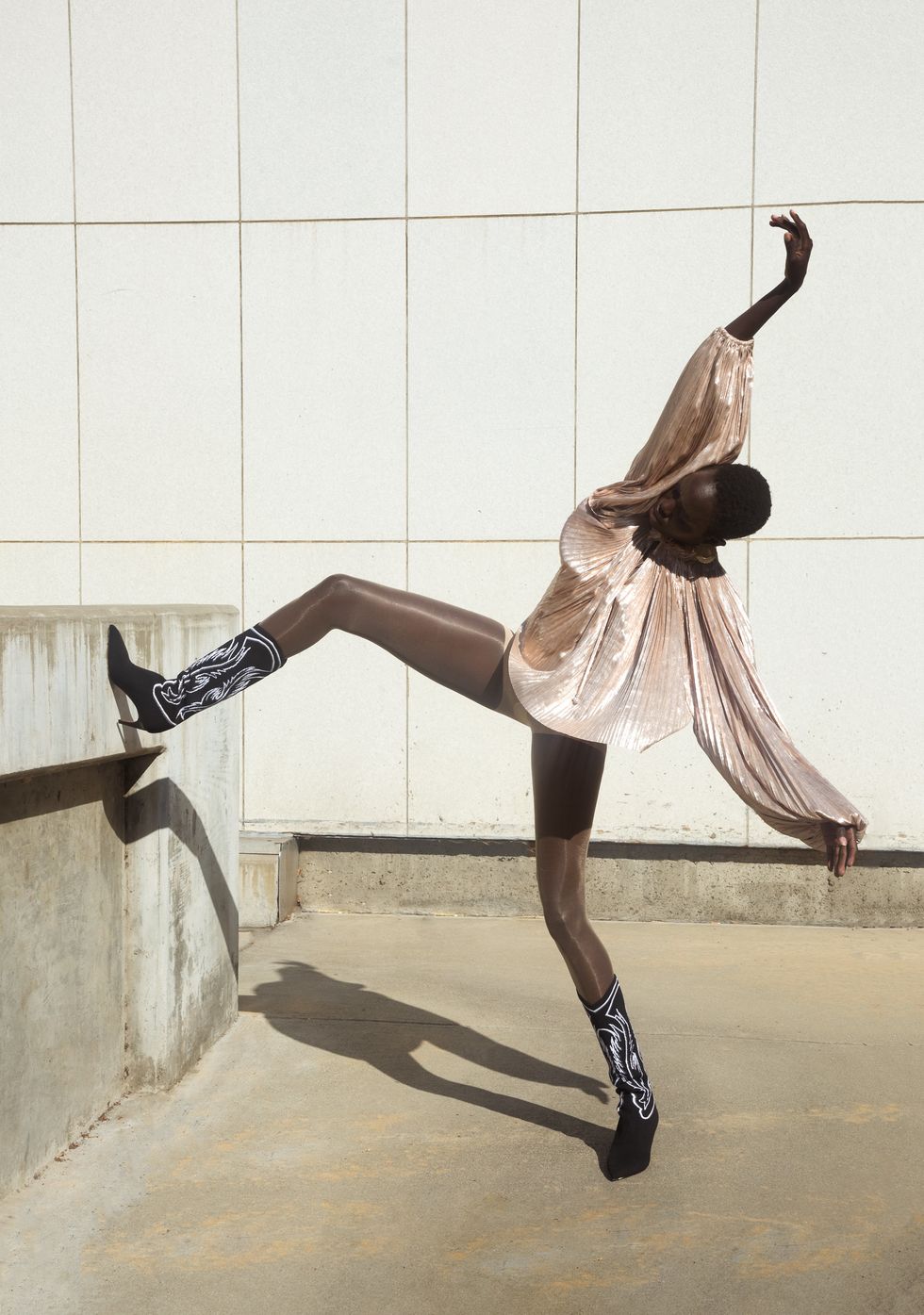
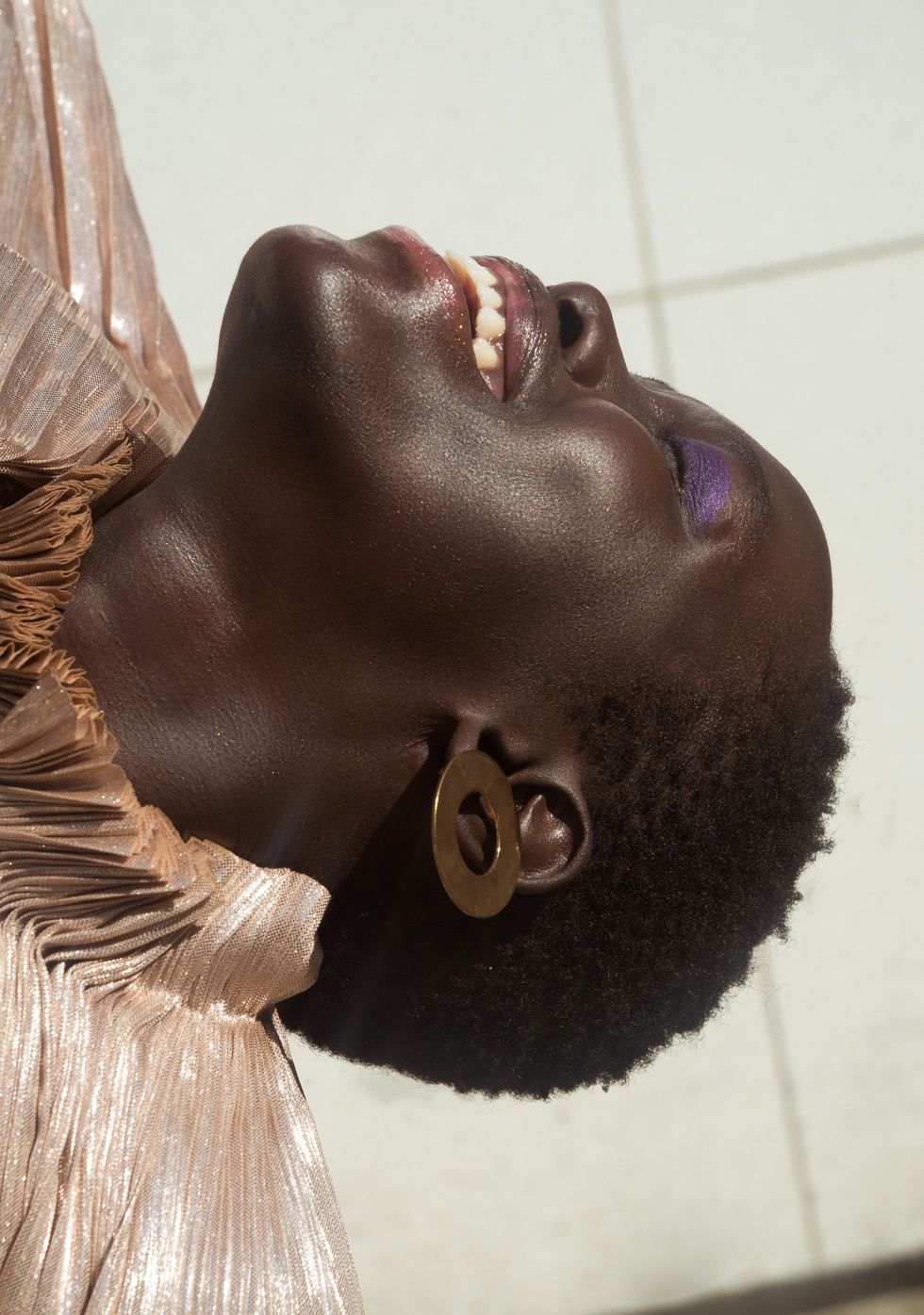
Twenty years after leaving your home, what does U.S. Independence Day mean to you?
I think for me, it represents opportunity, but also it represents a sense of home and calm. For me, South Sudan still is home — but America is also home. I see myself living here for the rest of my life. So I think it gives me a sense of home, because the home that I came form was not stable for me to feel it, in that sense.
Related | 13 American Cultural Leaders on What July 4th Means to Them
How do you feel as July 9, South Sudan's Independence Day, approaches?
We haven't celebrated a holiday or anything since 2013 [when the civil war begun]. And because of that, it's very disheartening. When we first got our country in 2011, we partied for at least three days. But now it's hard for us to even celebrate the fact that this did happen. I think that it's a process. We should have the entitlement to celebrate it, but because of what is happening now, we can't. It would be a terrible thing to do. So I think that for us, we just call each other and check on how we're doing, and it's just not even a holiday anymore for us. It's more of a remembrance for us of something that did happen.
"There was a huge lack of resources, especially for immigrants in general. So we all had to learn how to depend on each other, and create a small community."
What are your hopes for South Sudan's future?
Right now, we signed another peace agreement. So I think logistically, there is hope. Because, I mean, we got through the civil war [that ended in 2005] and managed to start our lives over. Knowing that it can be done, that's where we have the optimism to do it. The question is how we're going to do it. That's the other part of it. But I do have hope. I think most of the time, we get carried away, instead of seeing how things have been better, and they could be better.
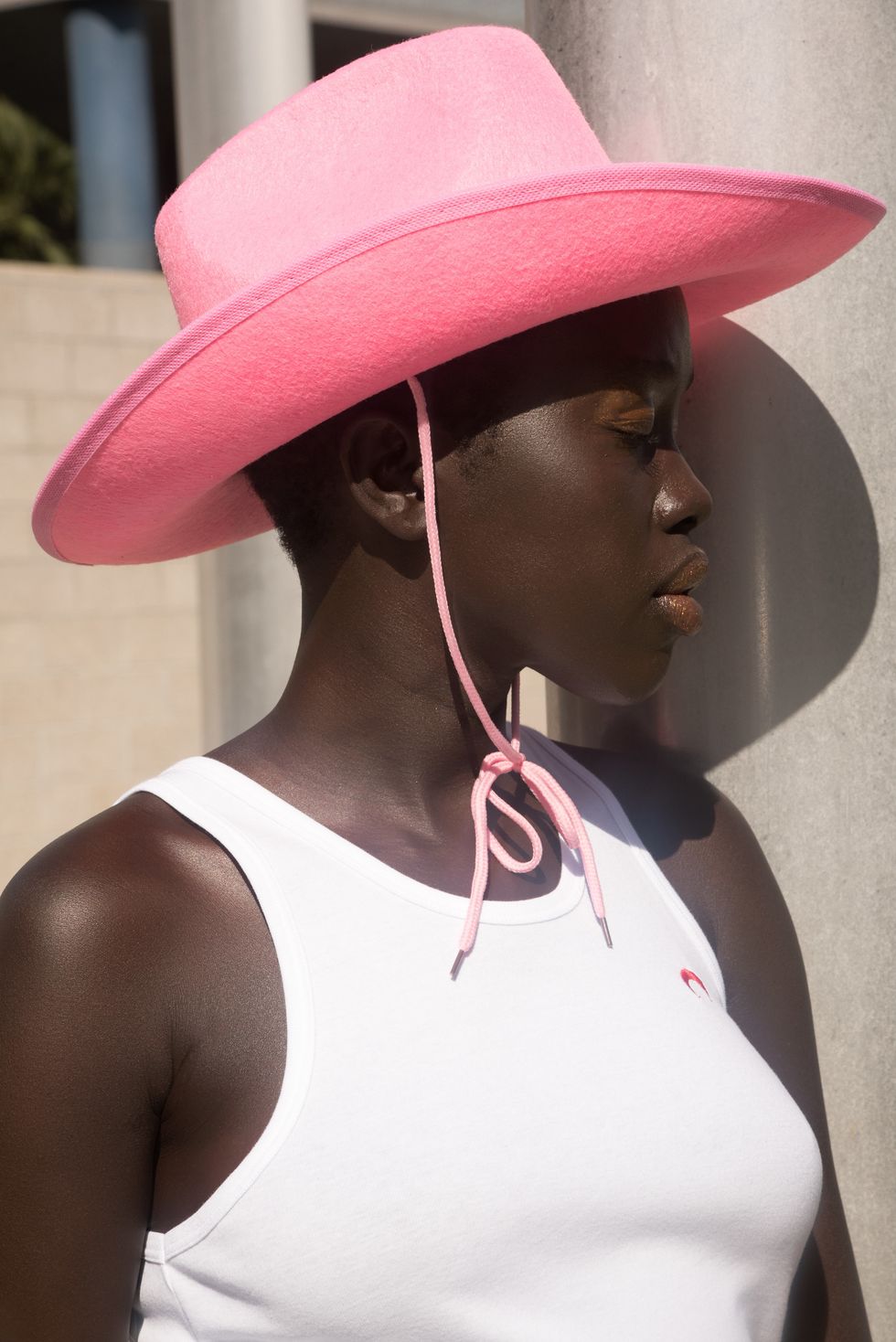
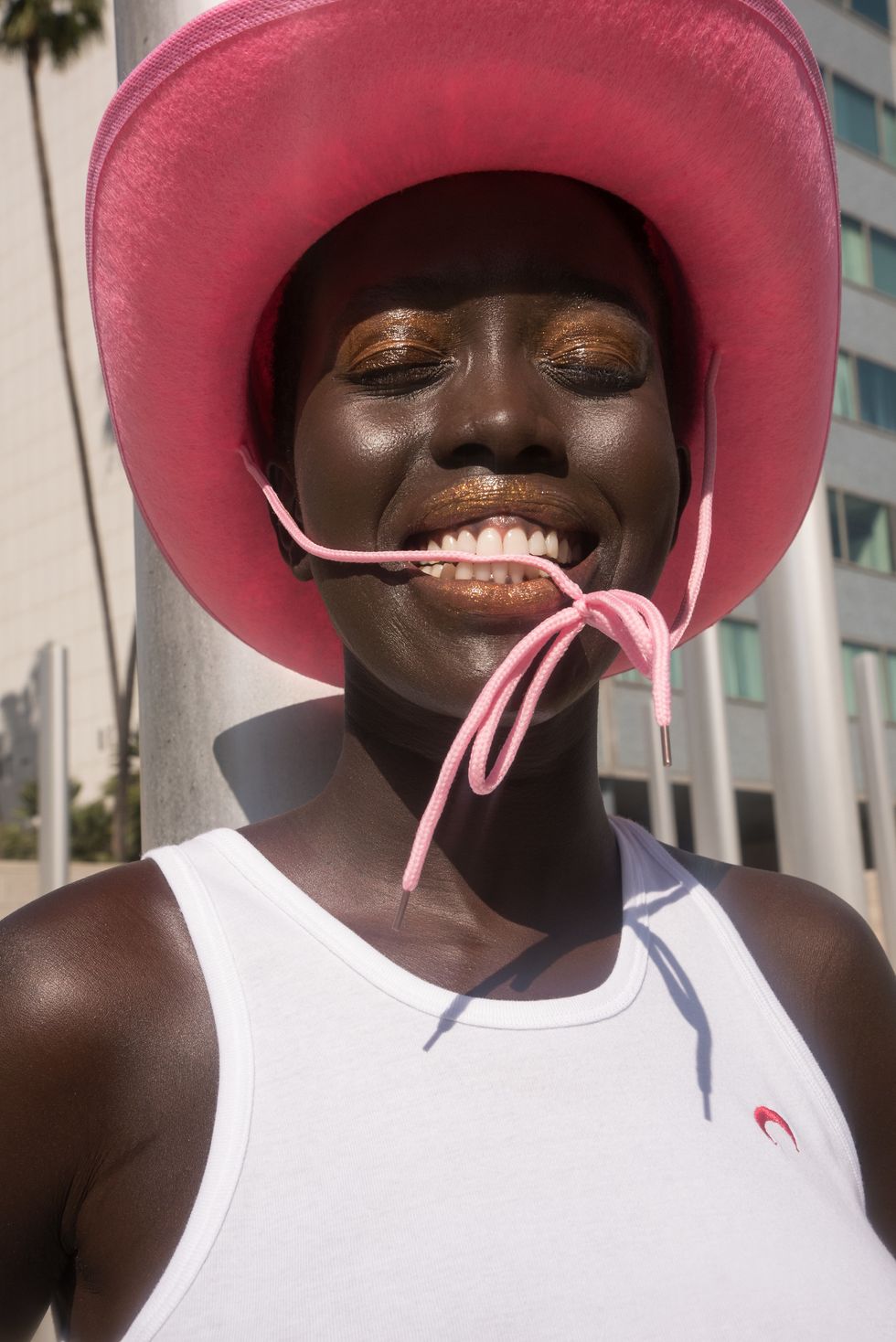
What do you think your resettlement process was like as compared to that of refugees today?
When you come as a refugee, the U.S. sets up everything; you have the documents, because you've gone through the interview with the state department. They have lawyers, they vet you and make sure you are someone who can benefit from being in America but also are someone who won't be a public need. So we went through a series of interviews before we even got onto U.S. land. Once we were here, we also had to repay our plane ticket — my mom had to pay plane tickets for seven people. You have to repay back the assistance that they give you, in that sense.
There are organizations that help with resettlement, but the infrastructure is not set up so that they can help a mass number of people. They usually just help you get an apartment, and once you get there they teach you how to operate things in it. After that, the Sudanese community helped us a lot. Because obviously we were able to communicate in a more effective way instead of waiting for someone to interpret and things like that. I remember just going through a series of shots and medical things that happen once you get here, and eventually, you can then apply to have permanent residency. I think that's usually within a year after you're here. Our family applied for that, then after that you can get citizenship. A lot of people don't know that you can get your citizenship within a certain amount of time of getting your residency, so other organizations would help out to get people register to get their citizenship.
I was one of the first people in my family to speak English and speak two languages, so I became a resource for them. I was always interpreting at hospitals and setting appointments, and I just remember being taken out of school really young, in the middle of my lessons, like hey, we need someone to go interpret for us. That became a regular thing for me, to be there for them, but also for other community members in Minnesota. There was a huge lack of resources, especially for immigrants in general. So we all had to learn how to depend on each other, and create a small community.
Even food was hard to find; there's not a lot of Sudanese food here in America. So we had to learn where to find that, to find those resources in our community. Ever since the beginning, I've been helping out, but also starting things from scratch. Being responsible at a young age, I think, taught me a lot [taking care of myself] but also about caring for others, in that sense. A lot of people couldn't do that for themselves, fill out government paperwork and things like that. I became very knowledgeable about how to navigate that world, in a sense.
"Even if you don't want to look at it politically, look at it in a humanitarian way — the fact that a lot of people's human rights are being taken away."
That really highlights the importance of community support.
Yeah, you can kind of just have to form your own community. For us, it was our church. It helped us a lot — helped us to find a car, get your driver's license, learn how to drive, things like that. We relied on the outside community a lot. They knew that they had a role to play in terms of us transitioning in America. Knowing where we had came from, I think there was more compassionate for us, because they knew that we had just escaped the war and were starting over, and also to see a single mom who has kids. She needs to help them to grow, to get from one place to another. I know what that impact is, the difference that it can make — even just seeing another person who comes from where you come from, who's thriving in this world, and to also have that person who could be a resource for people, as well.
There are a lot of solid, impactful organizations, but even if the quantity of resources has grown, so has the refugee crisis. Community support really seems vital.
That's the thing, I tell people, we all have a role to play in this situation. Even if you don't want to look at it politically, look at it in a humanitarian way — the fact that a lot of people's human rights are being taken away. You have to look at it that way. We're the only ones that can help. We have to know that each of us can say something, we can do something, because we are in a place to do so. We owe it to them.
For more information on the NyaEden Foundation, visit nyaedenfoundation.org.
